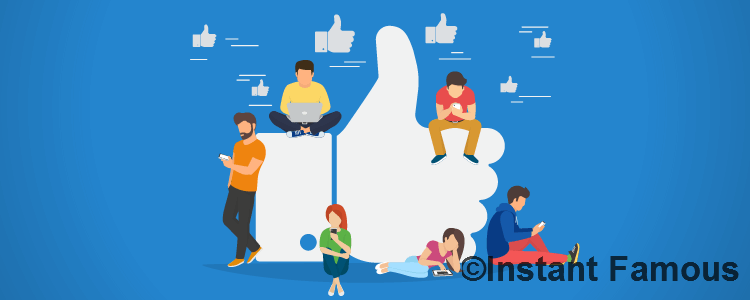On Facebook, we get to see Facebook photos and videos posts which can be uplifting or weak sometimes. While several studies have observed the emotive values of using Facebook, lesser attention has been paid to how having more Facebook likes to improve happiness and make our life better. Well, our emotional results of having more Facebook likes is expressively influenced by three parts:
- Personal Traits.
- Post Contents
- Relationship Between Poster and User.

Facebook algorithm display more positive posts if you have stronger ties to other users with a lesser degree of envy. As humans, we rely more on our ability to sharing others’ emotions to participate in positive social interactions. The capability to experience other’s feelings leads by having more Facebook likes the predisposition to inevitably imitate and synchronize expressions, postures, words, to improve your happiness feeling and make your life better.
New studies have also shown that emotions like happiness can be transferred, from one user to another, not only physically, but also regarding having more Facebook likes. The liking of others’ positive news on Facebook also leads to feeling happiness through emotional contagion. Such empathy is more distinct when the connection between two Facebook users is much closer. These kin relationships are incredibly crucial to making you feel better. And thus, the capacity to relate better with others through social interactions.
Facebook users with more familiarity and similarity are more likely to grasp happy emotions from each other. More specifically, encouraging post leads to happiness, and negative post leads to having bad mood contagion. The transmittable effect is always stronger when the Facebook post comes from stronger ties.
The closer the connection, the more contented a Facebook user, will be after seeing a positive post and as such, always lead to having more Facebook likes. In the real sense, some user may do other things, such as pulling down the performance of other’s, to decrease one’s self-happiness. How another user able to get in the way of others to affect happiness level is mostly reliant on the closeness and the relevance of such user. When the compared Facebook user is not essential to one’s self-definition, the likeness process is much more significant than the judgment process.
Vacation pictures are more likely to generate more likes, and such related Facebook posts, are not self-evaluation or threatening. Thus, lesser envy is expected when it comes to having more Facebook likes from close friends. If you have a more intimate relationship with most of your Facebook list, it is more likely you experience kinder envy. Even though envy is a shared reaction felt by most individuals, there are significant distinct alterations in the inclination to handle it. For Facebook users with advanced dispositional happiness, you can expect a more likely engagement in an upward social manner and experience more pleasant feeling in making your life better after going through an encouraging post on Facebook.
Not all Facebook post is terrible. I hope you find the more happy feeling and encouraging Facebook post to make your life better and also contribute to the creation of better online-communication environ that will eventually improve every individual happiness on social media.




